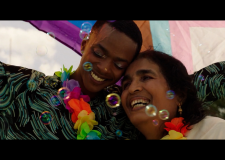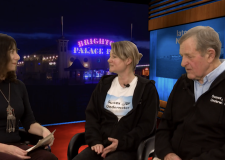Frank le Duc: The Vote
Children are being put in a vulnerable position by the very experts meant to help them, says a health watchdog
Some troubled children in Brighton and Hove are being put in a vulnerable position by the very experts who are meant to help them, according to an independent watchdog. Healthwatch Brighton and Hove has spent time gathering evidence from some of those youngsters, from parents and carers and from local charities about the situation.

It is not the first local organisation to flag up concerns about the local Child and Adolescent Mental Health Service (CAMHS). A Brighton and Hove City Council scrutiny panel presented measured but critical findings earlier this year. Its report spoke of “harrowing stories” and “appalling experiences”.
The latest report said: “Over the past year Healthwatch Brighton and Hove has been hearing talk of dissatisfaction and frustration from parents, young people and voluntary and community sector organisations about the local CAMHS service which has led us to look into it in more detail.
“While a range of statutory organisations were aware that there were some concerns about CAMHS, there seemed to be a lack of an in-depth knowledge about specific issues and how they could be improved. For this reason, Healthwatch Brighton and Hove has gathered a range of recent research from public and third sector organisations and reviewed their themes to create a clear overview of issues and suggestions for improvements.
“Throughout we have also included the voices of young people and those who support them on a range of key subjects.”
Healthwatch said: “This report shows that the complexity of the service and lack of information is putting young people in a vulnerable position. Young people and their carers have said that they did not know what they could expect from CAMHS, what their rights were within the service or where they could go to for extra support in a crisis situation.
“It was felt that some GPs had little understanding of autism and mental health”
“In addition, due to the complex relationships between local CAMHS organisations, some people have experienced multiple diagnoses or not been informed about their diagnosis at all.
“The report also revealed that some GPs are confused about the referral pathways and where to send young people once they near the age of transition between services. This could result in some young people never reaching the services they need to contact. It was also felt that some GPs had little understanding of autism and mental health, which made referrals and diagnosis more challenging.
“Not only have young people found it difficult to engage with CAMHS, but parents have also often reported feeling blamed for their children’s behaviour and condition through general staff attitudes towards them or because they were asked to complete a parenting skills course. They were also labelled by CAMHS staff as being over-protective or attention-seeking.
“With local A&E waiting times under pressure and other resources such as the Sussex Mental Healthline orientated around adult mental health and signposting, some parents felt that they did not know where to turn when there was an emergency.”
Frances McCabe, who chairs Healthwatch Brighton and Hove, said: “Identifying and supporting troubled children is the top priority for families and society. That the services do not succeed for so many children and young people is not acceptable. Delays, drift and diagnostic problems in young lives lead not only to great distress for the child and their family, but can affect their whole life in the future. When CAMHS services succeeded, children’s lives were transformed.”
Healthwatch has shared its recommendations with the council and the Brighton and Hove Clinical Commissioning Group (CCG). The CCG said that it was taking stock. This comes against the backdrop of an inquiry by MPs into shortcomings in CAMHS across the country.
The CCG said: “Over the next three years we intend to work with key stakeholders to improve the model of care for children and young people.” The GP-led health commissioners said that it would review feedback from young people and their families about the service, assess local needs and work out a better way of working.
In its report, Healthwatch thanked three local organisations, Mind, Amaze and Mascot, who all raised issues. One test will be whether they are still raising the same sort of issues in the years ahead.





















